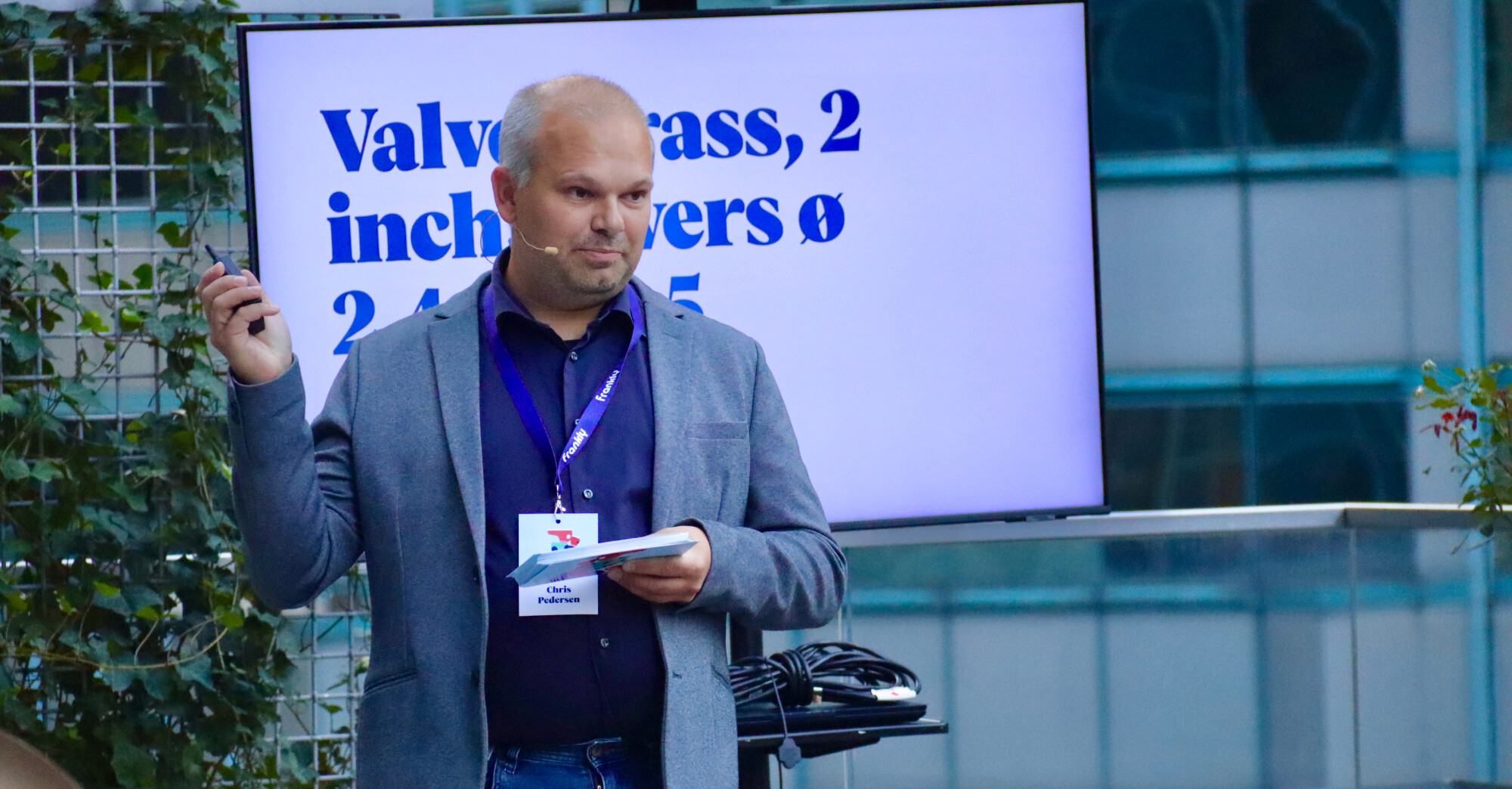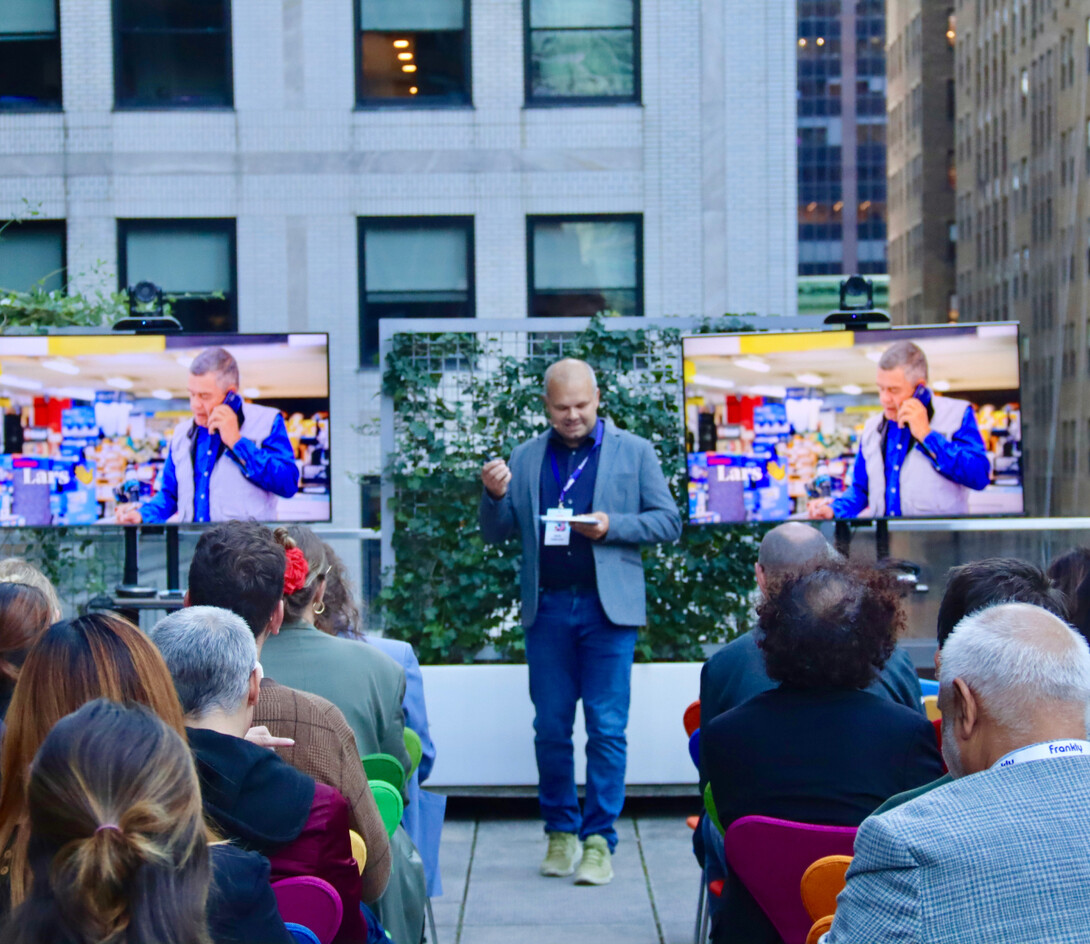When AI met reality — a Frankly perspective

Chris PedersenTechnology Director at Frankly

November 30, 2022. ChatGPT hits the market and instantly pushes the boundaries of what is possible, leaving everyone amazed. It felt like a new world was being created right before our eyes. This is the story of how we at Frankly embraced AI and started using it in our services and for our clients.
At Frankly, we jumped right into exploring AI as a service for our business—whether it’s design, copy, or tech. We didn’t just see it as a way to boost productivity but also to bring new solutions to our clients. So, we set up an incubator to dive into what AI could do and help our teams get on board with it.
At first, it didn’t exactly go as we’d hoped—a lesson, I’m sure, that many can relate to. Without a solid input, AI, at best, creates empty calories; at worst, it manufactures beautiful lies.
We continued our efforts unrepentantly.
The impossible made possible
We shifted our approach and started anchoring AI within our teams, looking for ways to do more than just make us faster—it had to tackle previously impossible tasks. The perfect opportunity came when our Account team met with a global manufacturing company client who needed to prep their 20,000-product catalogue for third-party sales channels like Amazon. It was a massive job; the products were spread across different systems, managed by various business units, and the data was in all kinds of conditions.
We kicked things off by pulling together all the data and building a dashboard so the sales team could get a top-level view of what was missing and pinpoint which units needed to catch up. But then we hit a snag: the product descriptions. They were written by engineers, for engineers—not exactly Amazon-friendly. Almost all 20,000 descriptions needed rewriting, but there were no internal resources to handle it.
Our copywriters weren’t thrilled about the idea of manually cranking out 20,000 descriptions, so they teamed up with our tech team to test how AI could help. Using the dashboard data, we trained AI to generate descriptions from templates.
What could’ve taken copywriters a year was done in four months, and the client told us their products now stand out, moving up to better channel placements.
A search that does more
Sitting on this massive pile of data got our tech team thinking—what else could we do with it?
We started developing an AI-powered search engine to help clients easily navigate and find the right products, offering fast, accurate, and personalised search results tailored to their specific needs. It took two weeks to get a demo ready. Obviously, it had its flaws. Not quite ready to set afloat.
The potential was evident. But we needed to evolve it beyond superficial capabilities and be equipped to handle more detailed and complex search queries, providing users with deeper, more accurate results.


Meet Lars
Lars is an account manager at one of our clients. His role is to assist customers in selecting the right products, introduce them to new offerings, provide guidance and support, and, overall, ensure customer acquisition and retention.
The thing is, customers seldom ask straightforward questions; more often, they have complex product inquiries that require in-depth knowledge and specialised understanding. The search begins: What did the client previously buy? Which heating units meet the requirements and are available by the customer’s deadline? Lars searches, studies datasheets, and follows up with the customer. In the ideal scenario, he can respond in 10-20 minutes, but complex inquiries can take days.
Now imagine if Lars could search using imprecise criteria and instantly receive helpful information. How much time could he save by not sifting through product descriptions or waiting on experts?
Introducing AIDA
If we could provide Lars and his sales team with intuitive access to product data, they could accomplish more, faster.
This idea led to AIDA, an AI-based sales assistant developed over six months. AIDA handles over 800,000 documents and 1 million rows of data, overcoming the challenge that existing solutions couldn't handle—sorting through vast content to deliver precise answers. Built on ChatGPT, AIDA is flexible, knowing the client's products while offering the full capabilities of ChatGPT. Integrated into the client's system, it securely filters information based on salespeople’s access levels and customer data.
After three months of beta testing, AIDA has proven effective. Salespeople are completing 10% more tasks, freeing up 200 full-time roles across 2,000 team members for more personal client engagement. Unexpectedly, they also use more products in quotes, including newer options with richer details.
AIDA’s story is just beginning, but the outlook is promising.

